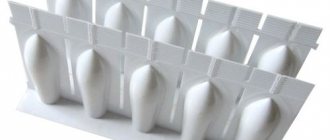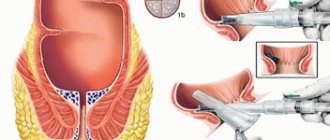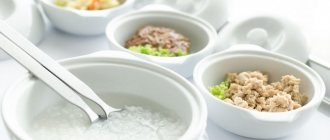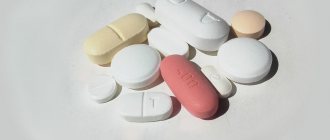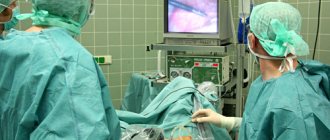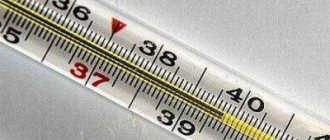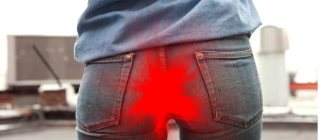Surgical treatment of hemorrhoids does not immediately relieve all symptoms of the disease. Often the healing of postoperative wounds is accompanied by an inflammatory process. To remove it, as well as speed up healing and reduce the risk of complications, it is necessary to continue treatment after surgery. Suppositories are prescribed quite often after hemorrhoid surgery. Acting locally, they significantly speed up recovery.
Possible complications in the postoperative period
Often, after removal of hemorrhoids, negative consequences appear. Every person should be aware of the complications that may occur after surgery:
- Pain . It often happens that people experience discomfort and severe pain after surgical treatment. Sometimes it is so strong that you simply cannot do without narcotic analgesics. Why does she appear? Doctors explain this by saying that the anesthesia stops working.
- Urinary retention or urinary dysfunction. This pathology mainly occurs in males. This is explained by the structural features of their genitourinary system. A catheter will help solve the problem.
- Purulent process. It develops as a result of a strong inflammatory process, as well as when an infection is attached. The specialist will prescribe antibiotics. In addition, it is necessary to treat the seam with special medications, which ones only the attending physician will say.
- Bleeding. A fairly common complication after surgical treatment. This phenomenon occurs immediately after surgery, after 5-6 hours or even days. Why does this phenomenon occur? The fact is that the seams can be damaged by feces. As a result, small cracks and wounds may form from which blood flows. The problem is solved by re-suturing.
- Narrowing of the anus. This problem occurs due to defects in suture application. Signs: the patient feels pain during bowel movements, there is a feeling of incomplete emptying, feces are released in the form of a thin ribbon. The doctor prescribes medication therapy. During treatment, the patient must adhere to a strict diet. The anal area is also massaged. If there is no positive result, anal plastic surgery is performed.
Strict adherence to the doctor’s recommendations and the use of medications will significantly reduce the risk of complications after surgery
Rectal prolapse and fistulas can occur extremely rarely. Moreover, the latter can appear several months after hemorrhoid surgery. As a rule, this is accompanied by an increase in temperature, up to 39 degrees, and acute pain.
To avoid complications, you must strictly follow all the rules, recommendations of a specialist and under no circumstances abandon drug therapy.
In certain cases, patients experience complications after hemorrhoid removal. Most often they appear soon after surgery, but some long-term effects can appear even after several months. To eliminate complications, it is necessary to carry out additional treatment, including sometimes surgery.
Any method of surgical removal of hemorrhoids can be accompanied by undesirable consequences; only the frequency of their occurrence differs. The more serious the surgery, the higher the risk. Postoperative complications when removing hemorrhoids include:
- Pain syndrome. The appearance of pain after the anesthesia wears off is due to the fact that there are many nerve endings in the anus. Normally, pain may persist for several days after surgery;
- Perianal edema. After hemorrhoid surgery, prolonged and severe swelling leads to impaired microcirculation, which complicates the wound healing process and leads to the formation of dense scar tissue;
- Urinary retention. This complication is eliminated by inserting a catheter into the urethra. In most cases, it occurs in men, as well as during the use of epidural anesthesia;
- Fear of defecation. Often in the postoperative period, patients experience a feeling of fear when it is necessary to have a bowel movement, which is associated primarily with possible severe pain;
- Bleeding. Occur as a result of injury to the postoperative wound by dense feces, the formation of anal fissures, or incomplete cauterization of blood vessels during surgery. To stop bleeding, depending on its cause, apply a tampon with adrenaline, a hemostatic sponge, or suturing a vessel;
- Narrowing of the anus. It can form as a result of hemorrhoidectomy if surgical sutures were applied incorrectly. This consequence is eliminated with the help of an expander or, in more severe cases, with plastic surgery;
- Rectal prolapse. Caused by disruption of the anal sphincter. This complication occurs as a result of damage to the neuromuscular fibers of the rectum during surgery. Conservative and surgical methods can be used to treat it;
- Postoperative fistulas. Refers to the long-term consequences of the operation. They are channels coming out of the rectum. The reason for their appearance may be improper suturing and infection. In most cases, conservative treatment is performed to eliminate fistulas;
- Suppuration. Formed when pathogenic bacteria enter postoperative wounds. To treat suppuration, antibacterial and anti-inflammatory drugs are used, and in severe cases, opening and washing the wound.
Important: Malaise, intense pain, chills and high fever after hemorrhoid surgery may indicate the formation of fistulas or other purulent complications in the anal area. If you notice these symptoms, you should immediately contact a specialist.
Causes
There are many causes of post-operative bowel problems. Some of them are directly related to a specific procedure. However, most reasons are indirect.
The following factors influence the occurrence of constipation:
- Pain. This symptom affects bowel movements. Not wanting to experience painful sensations again, the patient decides that it is better to empty the intestines later, when the symptom disappears. However, the result is constipation.
- Painkillers. Opioid medications such as Morphine, Oxycodone and Codeine can cause bowel problems. These medications slow down the peristaltic movement of the intestines. In addition, painkillers increase the tone of the anal sphincter; they also inhibit the defecation reflex, which is necessary for normal bowel movements.
- Lack of physical activity after surgery is another cause of post-surgical constipation.
- Problems with bowel movements after abdominal surgery may be a sign of mechanical intestinal obstruction. In this case, the patient will also experience abdominal pain, bloating, and vomiting.
- The cause of constipation after surgery is poor nutrition. Some foods bind stool.
Due to a long delay and the impossibility of timely emptying, a fecal impaction forms, it is difficult for the patient to go to the toilet “in a big way”, problems with defecation begin and constipation occurs.
Rehabilitation period after hemorrhoid removal
- After hemorrhoid surgery, suppositories are injected into the affected area, quickly dissolving and entering the blood, thereby reducing the pain of the sensation. The drug acts quickly and effectively.
- They have an anti-inflammatory and healing effect.
- Tested on a large number of people.
Solcoseryl ointment promotes the healing of postoperative wounds. It will be especially useful to use it after surgery using the Longo technique, when the nodes are cut off along with the mucous membrane. The action of the ointment is aimed at restoring the functioning of blood vessels, and accordingly it prevents the development of relapse.
Levomekol ointment after removal of hemorrhoids is indicated for patients not only because of the acceleration of scar healing. The ointment works very well as a product whose action is aimed at disinfecting wounds due to the antibiotic in its composition. The human intestinal tract is filled with bacteria, some of which are pathogenic. During defecation, microorganisms can enter an unhealed suture and cause it to fester.
Levomekol ointment is widely used for dressing hemorrhoids, as a drug that promotes the regeneration of mucous membranes and skin. The product can be applied for up to a year, since Levomekol is applied topically and does not enter the bloodstream. Thus, the antibiotic content in the ointment does not harm the body.
Petroleum-based naphthalan ointment treats hemorrhoids. The resins contained in its composition heal and dry the operation site. The use of this ointment has an effect on the blood vessels: it dilates them and thereby reduces pain symptoms. However, the drug can be used for no longer than a month, since the essential substances in the product are very toxic. As a rule, a good effect can be achieved after 2 weeks by using the ointment during dressing of hemorrhoids.
Suppositories after surgery to remove hemorrhoids are indicated for all patients without exception. In the postoperative period, defecation should be as gentle as possible so as not to disturb the healed tissue. Topical preparations such as suppositories are very popular.
Treatment after surgery to remove hemorrhoids necessarily includes glycerin suppositories, as they ensure a soft release of stool. Glycerin helps prevent constipation. If you have not visited the toilet for 2-3 days, then after installing the candle within an hour you will be able to cleanse the rectum.
Glycerol as such is not harmful to the body, since it is involved in almost all metabolic processes. However, candles come into contact with oxygen, which promotes their oxidation. As a result of this process, the contents of the candle decompose into water and carbon dioxide, which can cause irritation of the intestinal mucosa.
To level out irritation from the candle, doctors recommend using Vaseline oil. It can be used as an ointment or taken orally. Glycerin is recommended for pregnant and breastfeeding women if constipation lasts no longer than 3 days. Another useful property of suppositories is increased blood flow in the anal passage.
Sea buckthorn does not require a neutralizer in the form of petroleum jelly, but has a coloring effect. Such suppositories for hemorrhoids after surgery are absolutely hypoallergenic and can be used regardless of the presence of constipation.
Sea buckthorn not only softens feces, but also produces a disinfecting effect. After placing a candle, you can skip applying the ointment, since sea buckthorn will relieve the anal canal of any infection - it is not without reason that it is called a natural antiseptic.
Suppositories after hemorrhoid surgery will protect against possible complications: bleeding, anemia and even relapses. They strengthen the venous walls and virtually eliminate the possibility of bleeding. Candles with sea buckthorn should be placed not before, but after going to the toilet: in the morning, and immediately before bed.
Vaseline oil after hemorrhoid surgery can serve not only as a neutralizer, but also as an independent laxative, combined with ointment and suppositories. Surgery to remove hemorrhoids involves the mandatory use of drugs that have a laxative effect.
One of the most effective medications in the postoperative period is Duphalac. It is worth noting that Duphalac is a fairly strong drug, since it can treat even long-term constipation. Healing after removal of hemorrhoids is due to 2-3 months of taking laxatives.
After the operation, the anal opening noticeably narrows, and in order not to damage the hemorrhoids, medications are taken systematically. After 1-2 months, the laxative can be used as needed.
Along with a laxative, suppositories and ointments, a diet is prescribed after surgery. By eating right, you can gradually stop taking laxatives earlier to protect yourself from addiction.
Indications for plastic surgery after hemorrhoid removal are quite rare - complications can be managed with conservative treatment. Ointments, suppositories and laxatives are not able to combat the following problems:
- Narrowing of the anal ring when medical dilators cannot correct the problem and the patient suffers from frequent constipation.
- The appearance of suppuration and fistulas that cannot be removed by puncture.
- An unaesthetic appearance of the anus in the form of pieces of excess skin, new prolapsed nodes and irregular scarring.
Plastic surgery does not in any way affect the possibility of recurrence of hemorrhoids, but in some cases it can speed up recovery.
Sanatoriums do offer their services in the fight against hemorrhoids, but you should not hope for the effect of these procedures alone. The main benefit that you can get from the resort is an unobtrusive daily routine, when you can spend a lot of time in a lying position.
In addition, patients attend special physical training, which will also have a beneficial effect on the person’s condition after surgery. In the sanatorium, your diet will be as close as possible to the diet prescribed by the doctor, but it is still worth stocking up on laxatives. It is also necessary to remember about ointments and suppositories, since defecation even within the walls of a health facility will be painful at first.
Original sanatorium programs can offer patients a variety of medications, but before using them, be sure to consult with a proctologist. The body already receives a lot of postoperative medications, including antibiotics, and there is no need for overload. Enjoy the clean air at the resort and do not forget about basic medical therapy.
Surgical treatment of hemorrhoids in advanced cases is the only option to solve the problem. It helps to permanently or permanently eliminate severe symptoms of the disease and significantly improve the patient’s condition by removing hemorrhoids. In this case, the rehabilitation period after hemorrhoid removal is of great importance.
The rehabilitation period depends on the chosen method of surgical treatment and the general condition of the patient. Restoring full functionality after surgery may take several days if minimally invasive techniques are used, or about a month if the patient has undergone hemorrhoidectomy. As complications develop, the duration of the rehabilitation period increases significantly.
The speed of rehabilitation after hemorrhoid removal depends on various factors. The chosen method of surgical treatment is of great importance. In the absence of complications, complete rehabilitation and restoration of ability to work after open hemorrhoidectomy will take about 5 weeks, while after using minimally invasive methods the patient can return to normal life within 3 days.
Important: Strict adherence to all doctor’s recommendations after surgery will help speed up recovery and prevent the development of complications.
For several days after surgery, the patient may be prescribed various medications:
- painkillers;
- anti-inflammatory drugs;
- laxatives;
- antibiotics.
Painkillers are necessary in the first days after surgery to relieve or reduce the intensity of pain. This is especially true for patients with high sensitivity. In severe cases, even narcotic analgesics can be used.
To relieve inflammation, stop bleeding and accelerate tissue regeneration processes, ointments and rectal suppositories are often prescribed after hemorrhoid surgery. These can be Natalsid, Relief, methyluracil suppositories. Also, to accelerate the regeneration of tissues damaged as a result of surgery and relieve inflammation, baths with the addition of potassium permanganate or decoctions of chamomile, calendula, and sage are effective. To prevent infectious complications, local antibacterial drugs are prescribed, for example, Levomekol ointment.
Advice: To prevent pathogenic microorganisms from entering the wound, it is necessary to observe the rules of personal hygiene.
Laxatives are used to thin stool and facilitate bowel movements in the postoperative period. They are usually taken within a few days.
After removal of hemorrhoids in the postoperative period, you must follow a diet. This will help make your recovery easier and faster. The main task of dietary nutrition is to prevent constipation and the formation of soft stool. Fasting is recommended on the first day. In the future, the diet must be compiled taking into account the following requirements:
- fractional diet;
- absence of foods that irritate the intestinal walls and promote gas formation;
- consumption of boiled, stewed or steamed foods;
- daily consumption of fermented milk products;
- exclusion of indigestible foods (mushrooms, fatty meats);
- the predominance of cereals, vegetables and fruits rich in vitamins and plant fiber;
- exclusion of alcohol, strong coffee, sweets, seasonings, spices, marinades, preserves;
Effect on the human body
The accumulation of feces in the intestines leads to the following consequences:
- With stagnation, toxins are absorbed by the mucous membranes. Harmful substances enter the blood. This leads to poisoning. The patient feels weak, has headaches, and loses his appetite. Later, as the condition worsens, vomiting and insomnia occur.
- With difficulty passing through the intestines, stool becomes dry and hard. Due to stagnation, the volume of feces increases. As a result, the masses damage the mucous membranes, causing them to stretch and deform. Constipation can lead to rupture of the walls and bleeding.
- Untimely and difficult emptying is accompanied by the formation of anal fissures. They further impair peristalsis due to emotional disorders. The risk of secondary infection increases.
Personal hygiene rules in the postoperative period
To ensure a quick recovery after the procedure, there are some rules and measures, which you will learn about below. Basically they concern only open hemorrhoidectomy.
Rules and recommendations:
- It is recommended to remain in bed for several days.
- Anal sex is prohibited after surgery.
- Sexual contact is allowed a month after removal.
- You can play sports only after permission from a specialist, usually a month after the intervention.
- Regular washing.
- No excessive physical activity or sudden movements.
These and many other recommendations from the attending physician will help you quickly forget about the terrible consequences of this pathology.
They have anti-inflammatory, analgesic and disinfectant effects. In addition, such decoctions can be added to baths.
To prevent this pathology from occurring again, after removing the node, you should not lift heavy objects or engage in physical activity. After defecation, it is necessary to wash and carry out special care. If the seam is inflamed or bleeding, you need to tell a specialist about it. He will prescribe medications with anti-inflammatory and antimicrobial effects.
You can quickly forget about such an unpleasant disease by strictly following all the rules and recommendations of a specialist. This is the only way you can avoid terrible consequences and complications.
An operation to remove hemorrhoids sometimes leaves not the most pleasant consequences, which the patient must cope with with medication. Painkillers, anti-inflammatory and healing medications speed up recovery after surgery and help prevent recurrence of prolapsed nodes.
Surgery leaves scars and wounds in the anal canal that need to be healed. Without medicinal assistance with the help of ointments, this process will last 2-3 times longer, which will significantly complicate the patient’s trips to the toilet.
Reviews
Yulia, 48 years old, Voronezh
The problem of hemorrhoids has been troubling me for a long time, since the time of my second birth. Despite supportive therapy, it was not possible to achieve complete recovery of health. Recently chronic constipation developed, which dramatically complicated the course of hemorrhoids. In addition to pain and a feeling of fullness, bleeding occurred in the rectum. It especially manifests itself after bowel movements. In this regard, a fear of visiting the toilet appeared.
The doctor recommended taking Duphalac in a course of 2-3 weeks. After a few days of taking it, I felt better. The stool became softer, bowel movements improved and became regular. Duphalac is an effective laxative for hemorrhoids, I recommend it for use.
Tamara, 27 years old, Novorossiysk
During pregnancy, hemorrhoids were discovered. As a result of overexertion during pushing, the disease worsened, causing bleeding. The doctor prescribed the best drugs to treat the disease. Since the condition was complicated by constipation, Forlax was included in the treatment. The product quickly helped to establish regular bowel movements.
Proper nutrition during the rehabilitation period
During the rehabilitation period after surgery, doctors will closely monitor the patient's nutrition. If all instructions are not followed at home after discharge, the chance of relapse will increase significantly
The first day of rehabilitation begins with fasting. On the second day and throughout the next week, the patient needs to eat sparingly. These can be soups with vegetable broth, lean meat and fish, various cereals cooked in water, and low-fat fermented milk products.
As the period passes, the diet becomes more varied. The main thing is not to forget that the products must be boiled, steamed or stewed.
Under no circumstances should you consume foods that can lead to severe gas formation and other pathologies.
Recovery in the postoperative period
Basic rules for patient behavior after surgery:
- Observe bed rest for 14 days, as otherwise a relapse is possible.
- Do light exercise, sign up for yoga or the pool, walk more. Avoid lifting heavy objects.
- Maintain personal hygiene.
- Take care of the convenience of your personal workplace. It is advisable to place a pillow on the chair if you have to sit for a long time.
- Follow the doctor’s recommendations and advice to avoid further exacerbations of the disease.
Rehabilitation of the patient is about 30-40 days, during this period it is necessary to limit yourself from lifting heavy objects, eat as healthy as possible, walk more and breathe fresh air. If we are talking about inflammation, then the postoperative process may take longer. The recovery process also includes recommendations from a proctologist. Compliance with them will allow you to return to your usual way of life much faster.
Drug therapy in the postoperative period
Often people feel discomfort and pain after removal. To prevent such symptoms from bothering the patient, a specialist can prescribe pills, but rectal suppositories will help cope with this problem and quickly eliminate it. You will find out which of them bring the best results further.
Rectal suppositories can relieve pain and relieve itching, but they should only be used as prescribed by the attending physician.
Suppositories after surgery to remove hemorrhoids - a list of the most effective and frequently prescribed:
- Ultraproct. It is an antipruritic, analgesic and anti-inflammatory medication. It contains castor oil, which promotes easier bowel movements. The drug is contraindicated in case of hypersensitivity to one of the components included in the composition. It can cause a number of side effects, such as a slight burning sensation, dryness in the anal area and much more.
- Posterisan forte. The medication has an anti-inflammatory and wound-healing effect. During therapy, it relieves symptoms such as itching well. With long-term use, side effects may occur. Remember that self-prescribing the drug is fraught with negative consequences. It is better to discuss the duration of use with a specialist.
- Natalsid. Such suppositories after hemorrhoid surgery are excellent at preventing replenishment. The main active ingredient is sodium alginate. After use, allergic reactions may occur. Should not be used if you are hypersensitive to the main component of the drug.
- Methyluracil suppositories after hemorrhoid surgery. They contain such a main active ingredient as Methyluracil. These suppositories have anti-inflammatory and regenerating effects. It is not recommended to use if you are allergic to any component included in the product. It rarely causes side effects. There may be a burning sensation and rash on the skin. Since this drug has its contraindications and can cause side effects, only a specialist can prescribe it.
- Highly effective and recently popular Proctosan suppositories. This drug has analgesic, anti-inflammatory, antipruritic, regenerating and bactericidal effects. Excellent for relieving swelling.
- Relief. The main active ingredient of suppositories is phenylephrine hydrochloride. In addition, they contain natural ingredients - cocoa bean butter, shark liver oil and others. This medicine effectively relieves pain, inflammation, and also accelerates wound healing.
- Gepatrombin G. has antipruritic, anti-inflammatory, analgesic and anti-edematous effects. This drug has a number of contraindications, so it can only be prescribed by the attending physician. Long-term use of the drug may cause unpleasant side effects.
- Rectal suppositories with propolis. The medication perfectly relieves inflammation and other unpleasant symptoms. In addition, suppositories have a regenerating and analgesic effect.
- Sea buckthorn suppositories. The main active ingredient of the medicine is a natural component – sea buckthorn extract. The drug accelerates wound healing, relieves swelling and inflammation.
What ointments are used after surgical treatment
After hemorrhoid surgery, medications such as ointments are used to numb the area of the disease. Such medications help in that they have analgesic, anti-inflammatory, antimicrobial and anesthetic effects.
These include Levomekol ointment. With the help of its gentle but effective effect, rapid recovery and healing occurs after the operation has been performed.
Levomekol, due to its mild effect, is prescribed even to women during pregnancy, since it is not absorbed into the blood fluid and acts locally. Levomekol perfectly eliminates pain, reduces the intensity of inflammatory processes, and eliminates purulent infectious processes.
Medicines in ointment form are effective for local use. One of the most effective is Relief ointment. It helps to recover and eliminate pain after hemorrhoid surgery. The type of ointment and the number of applications is determined by the attending doctor.
Another anti-inflammatory ointment is Troxevasin. It can quickly relieve pain. It also helps eliminate swelling and the inflammatory process after varicose growths in the rectal area have been removed.
What laxative suppositories are used to combat hemorrhoids?
Rectal suppositories must be stored in a cool place, because at temperatures above 15 degrees they can melt, which further complicates the administration procedure. Suppositories should be used daily after hemorrhoid removal. It is extremely important to read the instructions carefully before use.
Before inserting a suppository for hemorrhoids into the anus, it is necessary to carry out hygiene procedures
In almost all cases, such medications are administered before bedtime. It is necessary to carry out hygiene procedures first. Next, the patient should lie on his side, press his knees to his chest and carefully introduce the drug into the anus. There is no need to place the candle very deep, the main thing is that it passes the sphincter and does not move further. After insertion, you must remain in a horizontal position, otherwise the suppository may leak.
